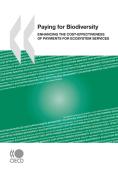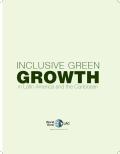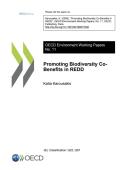
Biodiversity and ecosystem services provide tangible benefits for society, such as food provisioning, water purification, genetic resources or climate regulation. These services provide critical life support functions and contribute to human health, well being and economic growth. Yet biodiversity is declining worldwide and, in some areas, this loss is accelerating. The need for policies that promote the conservation and sustainable use of biodiversity and ecosystem services is more important than ever.
Payments for Ecosystem Services (PES) is a direct and flexible incentive-based mechanism under which the user or beneficiary of an ecosystem service makes a direct payment to an individual or community whose land use decisions have an impact on the ecosystem service provision. Interest in PES has been increasing rapidly over the past decade: PES are proliferating worldwide and there are already more than 300 programmes in place today at national, regional and local levels.


"Ecosystem services" has become a catch-phrase for the complex connections between the natural environment and human well-being. This paper considers the impact of changes in the supply of ecosystem services, and programs to increase their supply, on near-term growth of gross domestic product. It focuses on the relationship between locally generated versus transboundary services and growth in developing countries, where the highest rates of ecosystem degradation tend to be found. There is a common perception that there is a tradeoff between environmental protection and economic growth, especially in the near term. This perception can make policymakers reluctant to support environmental protection. Where the environment is a source of economically important services, then environmental protection may stimulate growth of gross domestic product instead of reducing it. The paper considers evidence on the economic value of regulating services; the degree to which ecosystems actually supply some of the services they are commonly assumed to supply; and the near-term growth implications of restoring ecosystems, and reducing their loss.

This report examines how biodiversity co-benefits in REDD (Reducing Emissions from Deforestation and Forest Degradation) can be enhanced, both at the design and implementation level. It discusses potential biodiversity implications of different REDD design options that have been put forward in the international climate change negotiations and proceeds by examining how the creation of additional biodiversity-specific incentives could be used to complement a REDD mechanism, so as to target biodiversity benefits directly.
This paper explores the value of green growth from the perspective of sustainable development practitioners. First, it provides a brief definition of green growth, and why the concept is relevant for meeting Africa’s challenges. It then discusses how green growth can be achieved, highlighting some of the primary tools for achieving it, and then discussing focal areas that we believe will have the greatest impacts by spurring growth sustainably. Finally, it discusses how the AfDB has promoted green growth through its own initiatives. Boxes throughout the paper provide examples of the AfDB’s promotion of green growth in its project portfolio.
